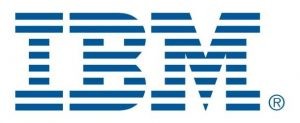Quantum News Briefs June 8: United Nations Proclaims 2025 as International Year of Quantum Science & Technology • IBM & Pasqal Initiate Collaboration to Define Classical-Quantum Integration for Quantum-Centric Supercomputers • IBM Mulling Expansion of Quantum Computing Operations in Chicago

News Releases:
United Nations Proclaims 2025 as International Year of Quantum Science & Technology
 The U.N. proclaimed 2025 as the International Year of Quantum Science and Technology (IYQ). on June 7 as per the APS 125 release. This year-long, worldwide initiative will celebrate the contributions of quantum science to technological progress over the past century, raise global awareness of its importance to sustainable development in the 21st century, and ensure that all nations have access to quantum education and opportunities.
The U.N. proclaimed 2025 as the International Year of Quantum Science and Technology (IYQ). on June 7 as per the APS 125 release. This year-long, worldwide initiative will celebrate the contributions of quantum science to technological progress over the past century, raise global awareness of its importance to sustainable development in the 21st century, and ensure that all nations have access to quantum education and opportunities.
IYQ coincides with the 100th anniversary of the birth of modern quantum mechanics — the theory that describes the behavior of matter and energy at atomic and subatomic scales and has made possible many of the world’s most important technologies. Over the past century, quantum theory has become foundational to physics, chemistry, engineering, and biology and has revolutionized modern electronics and global telecommunications.
Looking forward, advances in quantum applications could enable new computing and communication models with the potential to accelerate innovations in materials science, medicine, and cybersecurity, among other fields. In this way, quantum science and technology is poised to help address the world’s most pressing challenges — including the need to rapidly develop renewable energy, improve human health, and create global solutions in support of the U.N.’s Sustainable Development Goals.
IBM and Pasqal Initiate Collaboration to Define Classical-Quantum Integration for Quantum-Centric Supercomputers

IBM and Pasqal, as leaders in superconducting circuit and neutral atom-based quantum computers respectively, announced their intent June 4 to partner to develop a common approach to quantum-centric supercomputing and promoting application research in chemistry and materials science.
IBM and Pasqal will work with leading institutions in high-performance computing to establish the foundations for quantum-centric supercomputing — the integration of quantum computing with advanced classical computing to create the next generation of supercomputers.
A key aspect of this partnering activity is the shared objective between IBM and Pasqal to foster utility-scale industry adoption in materials science and chemistry; an area where quantum-centric supercomputing shows immediate potential. IBM and Pasqal aim to substantially advance the use of quantum computing for applications in chemistry and material sciences, by harnessing their respective full-stack quantum computing leading roles and by working with the Materials working group established last year by IBM
In Other News:
In Other News: The Real Deal Reports “IBM Mulling Expansion of Quantum Computing Operations in Chicago”
 The Real Deal Real Estate News reported June 4 that IBM is mulling an expansion in Chicago amid “continuously growing interest and investment in quantum computing” across the city and state.
The Real Deal Real Estate News reported June 4 that IBM is mulling an expansion in Chicago amid “continuously growing interest and investment in quantum computing” across the city and state.
The company is collaborating with the University of Chicago, University of Illinois Urbana-Champaign and the Bloch Quantum Tech Hub on several projects “to advance our timeline of bringing useful quantum computing to the world, and are looking forward to being a part of other significant developments soon,” Jay Gambetta, vice president of IBM Quantum, told the outlet.
The details of IBM’s potential expansion are scarce, but the company’s interest in ramping up its quantum computing operations s a big win for Gov. J.B. Pritzker, who’s been working to put Illinois at the forefront of this technological revolution. Last week, lawmakers approved Pritzker’s request for $500 million dedicated to quantum development.
The Real Deal explained, “A quantum computing hub could breathe life into vacant or outdated industrial properties”.




















